The medical profession is a complicated one to navigate at the moment. Hiring physicians is especially challenging in this environment. But despite these challenges, it remains true that staffing your facility with high-performing individuals is the surest (and, really, the only) way to create a successful medical organization. The question then becomes: how does your organization overcome any staffing challenges that could potentially impede the progress?
In this post, we'll look at the internal and external challenges associated with physician staffing and how you and your facility can deal with them to hire the right people in the right positions, improve patient outcomes, and optimize facility success.
Learning how to use and gather data
Data is playing a massive role in how healthcare is administered throughout the nation and the world. Physicians have never had more data available to them. This data can be used to improve patient outcomes, of course, but it can also help you recruit the best possible candidates for your facility. There are a few ways in which data analytics will continue to shape healthcare staffing in the future:
Physicians who understand the importance of using data to improve patient outcomes will surpass those who don't.
Physicians comfortable interacting with those who interpret data will have a distinct advantage.
Recruiting is more informed by data than ever, and healthcare organizations that understand its power will be able to identify top candidates more efficiently.
Telehealth will continue to play a larger role in medicine
Over a seven-year time frame, the number of hospital systems relying on telehealth in the U.S. jumped from 35% to 76%. Shelter-in-place and lockdown orders have pushed this practice even further, moving telehealth from a convenience to a necessity. The use of this technology is only going to continue trending upwards. For facilities, that means identifying staff who are comfortable using the communication platforms associated with telehealth. It also means understanding how to communicate virtually.
The rise of holistic health
Top physicians today know that a patient's health extends well beyond physical consideration. Family history, age, diet, and exercise frequency all contribute to a patient's health, but so do mental and emotional factors. When staffing physicians, it's essential to consider how much they understand this and factor it into the care they provide. You'll want to hire physicians that treat and evaluate the patient's entire spectrum of circumstances and experiences.
More technology
More and more healthcare is taking place in the digital space than ever before. With this increased reliance on digital communication, recordkeeping, and patient care, that means your staff will need to be proficient in several technologically-related skills. Knowledge and experience aren't enough anymore. To better meet your patients' needs, your various staff members will need to understand how to interact with an ever-growing number of technical systems and tools. When staffing your facility, you'll want to keep this in mind. Whether you hire staff members who are well-versed in these technologies or adopt a comprehensive training system to help get them up to speed, it's a significant factor in how you provide care.
Shortages in the healthcare workforce
The healthcare industry is up against a severe workforce shortage that only continues to grow. One study shows that the demand for healthcare professionals will outpace supply as early as 2025. Nowhere is this more pronounced than in the area of nursing. The same study found that by 2025, there may be a shortage of more than 29,400 nurses.
So what does this mean for healthcare facilities? It means employing strategies intended to safeguard against this growing problem. That means determining how workforce optimization and the use of locum tenens providers can help augment and supplement your staff. It also means figuring out how to attract and retain top talent during physician recruitment.
Understanding the need for empathy-based care
You may employ the best doctors, nurses, and other healthcare professionals who are experts in their field and more knowledgeable than any of their peers. But those skills aren't as valuable if not paired with an empathetic attitude towards the plight of their patients. An article in the Alliance for Academic Internal Medicine on leadership in healthcare noted how critical it was for leaders in the medical profession to deploy emotional empathy as they provide care. Having emotional intelligence is something to look out for.
Streamlining the patient experience
Often, a patient's experience with a healthcare facility can be scary or intimidating, no matter how high the level of care is. This makes it paramount for healthcare facilities to decrease the patient's touchpoints and make their experience at the facility as seamless as possible. Healthcare providers who understand this need make better candidates. Your patients will have plenty of people to talk to and paperwork to fill out. Before recruiting, identify potential providers who may know strategies to lessen the patient's load while also employing systems that encourage organizational simplicity.
Placing the patient and community at the center of your practice
Ultimately, your practice will only be as successful as your patients' outcomes. The best patient outcomes result from engaged providers who frame the patient at the center of the healthcare spectrum. With improved individual patient care, the community then benefits from healthier citizens. It's crucial to work with providers who adopt the communication and interpersonal skills this approach requires. The old standard of doctors having a good "bedside manner" is more than just an expression — it's a mindset providers must have in which they place patient and community needs at the forefront. Recruit with this in mind.
The importance of defining internal and external staffing challenges
In short, you'll want to maintain awareness of internal and external physician staffing challenges in the following areas:
-
- Data
- Telehealth
- Holistic health
- Technology
- Workforce shortages
- The value of empathy
- Patient experience
- Centering your practice around the patient and community
While these challenges exist, they aren't insurmountable. The best hospitals and healthcare facilities know how to adapt to account for these realities, embracing change to maintain a flexible posture. To do that, it helps to partner with a trusted provider of staffing knowledge, strategies, and services. VISTA can be that partner, as we have a wealth of expertise and experience in healthcare staffing. For more on how we can help, contact us today.


